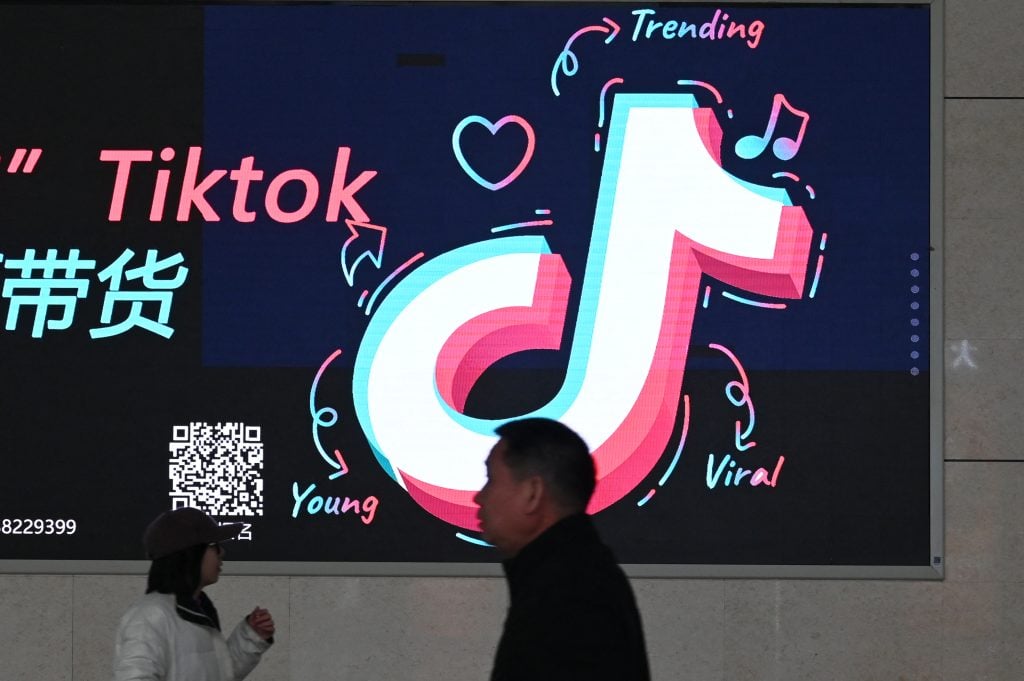This week the US House of Representatives passed a bill that requires TikTok’s Chinese owner ByteDance to sell the social media platform or face a ban in the US, in a move that experts say could “embolden” African leaders to impose similar restrictions on the continent’s fastest-growing platform.
Lawmakers in Washington have acted against ByteDance over allegations that the China-based company collects sensitive user data and censors content deemed unacceptable by the Chinese Communist Party – allegations which the company has consistently denied.
The bill, which still needs to be cleared by the US Senate before coming into force, would bar app stores from hosting TikTok unless it is sold to a company not based in China.
While it is not yet clear whether the bill will pass the Senate, the move could have important ramifications for the company’s operations in Africa, where it has proved similarly controversial – although for different reasons – despite growing to become the continent’s second most used platform after Facebook.
TikTok’s African controversies
TikTok has faced a serious backlash in Kenya, for example, where a petition called for TikTok to be banned on the grounds inappropriate content on the app was “eroding” Kenya’s cultural and religious values. While the company managed to avoid an outright ban, TikTok was forced to adopt stronger measures to remove offensive content from the platform.
The platform has, however, been completely blocked in Senegal and Somalia, while there have been strong calls in Egypt and Uganda to follow suit.
However, African governments’ mistrust of TikTok has different roots to those of the US administration. While US policymakers generally fear the national security implications of Chinese ownership of TikTok and its potential for China to access US user data, the scepticism of African governments is largely driven by the uncontrolled nature of the platform and its content.
Defenders of the app argue that TikTok is a victim of politically motivated decisions and that, particularly in the cases of Senegal and Somalia, restrictions on its activities are a thinly veiled attempt to clamp down on free expression.
Rotimi Ogunyemi, a technology lawyer based in Lagos, similarly argues that “in the US, actions against TikTok are often justified on national security grounds, within a legal framework that strongly protects free speech.”
“In contrast, some African governments have pursued bans or regulations of digital platforms for political control or to suppress dissent […] this raises serious concerns about digital rights and freedom of expression.”
Mugambi Laibuta, an advocate of the High Court of Kenya and expert in digital law, tells African Business that the US move to ban TikTok could legitimise efforts to restrict social media use in Africa.
“We have countries across Africa where the use of social media is effectively outlawed – there are crimes like digital defamation and misuse of computer systems that are used against content creators. You often find this in Tanzania, while Facebook is banned in Uganda, for example,” he says.
“This move by the US may embolden countries across Africa considering similar bans, by giving them a valuable reference point they can cite when trying to ban TikTok or other social media platforms, usually for political purposes,” Laibuta adds.
Ogunyemi also fears that, should government in Africa be encouraged to follow the US example, this could have negative economic impacts given the rapid rate of growth digital platforms are seeing.
“The digital economy in Africa is growing, with young entrepreneurs and content creators leveraging platforms like TikTok for business growth and innovation. Any move to ban such platforms must consider the economic implications and the potential to stifle the innovation driving sustainable developments across the continent,” he says.
“Outright bans may not be the most effective or desirable approach.”

